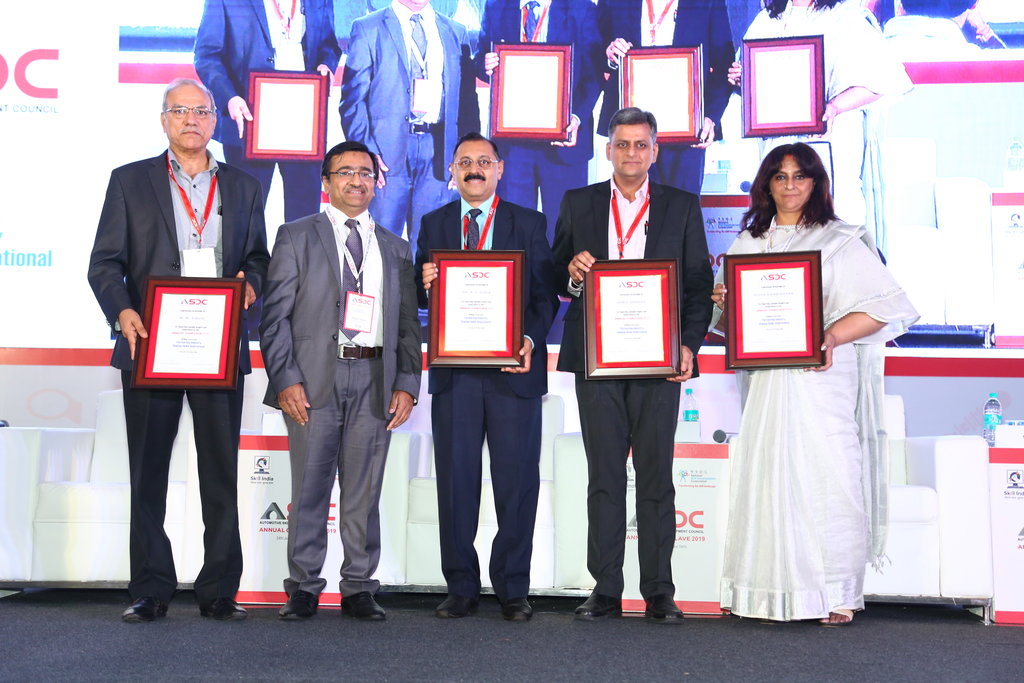One of the key focus areas in the ASDC Annual Conclave 2019 pertained to introspecting on the challenges and identifying the opportunities for vocational skills institutions and industry training centers. Sharing their perspectives, the panel members, highlighted the need for promoting apprenticeships, adapting dual model of education, offering vocational training at the school and college level and other related issues. The panel discussion was moderated by Ms Fatima Karan, Consulting Editor, BTVI, analysing the need for PPP models in skilling, the role of government in scaling and supporting the private sector and much-needed active contribution from academic institutions. Let’s read on..
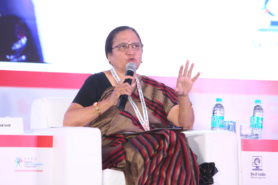 “As a key stakeholder who has an important role to scale up skilling, the government has come up with many schemes. To meet the vast numbers, government institutions can provide us that and we need to deliver on the requirements quickly. Another important area pertains to core skilling wherein dynamic needs of the automotive industry can be met through research institutions like ours. Apart from this, skill development has to prepare the youth for future jobs. Borrowing from the dual VET model in Switzerland, skill based courses can be offered as parallel track. We need to work on identifying the industry needs for future skills and design courses accordingly. We can also learn from other industry sectors’s success stories.” Ms. Rashmi Urdhwareshe, Director, Automotive Research Association of India (ARAI)
“As a key stakeholder who has an important role to scale up skilling, the government has come up with many schemes. To meet the vast numbers, government institutions can provide us that and we need to deliver on the requirements quickly. Another important area pertains to core skilling wherein dynamic needs of the automotive industry can be met through research institutions like ours. Apart from this, skill development has to prepare the youth for future jobs. Borrowing from the dual VET model in Switzerland, skill based courses can be offered as parallel track. We need to work on identifying the industry needs for future skills and design courses accordingly. We can also learn from other industry sectors’s success stories.” Ms. Rashmi Urdhwareshe, Director, Automotive Research Association of India (ARAI)
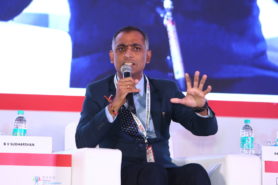 “Demand analysis and the level at which we are training is essential to make skilling impactful. We can resolve this issue by analysing the industry demand and the level of skilling in our country. If we look at Germany they have integrated vocational training from 7th standard itself. In India, youth aspirations are different as they are not aware of job market dynamics . We need to start the skilling from the primary level / higher secondary to convey its significance in employment and economic development. Vocational education and formal education should co-exist from the primary level and it should be compliant with NSQF helps to meet industry demands and emerging needs of industry 4.0. Automotive sector is competitive and it has many MSMEs; the government has to play a major role in skilling the employees of MSME to avoid productivity loss. We also need to show vertical and horizontal growth, respect and recognition from society like we have for mainstream education.” Mr B V Sudharshan, Director & Board Member- Nettur Technical Training Foundation (NTTF)
“Demand analysis and the level at which we are training is essential to make skilling impactful. We can resolve this issue by analysing the industry demand and the level of skilling in our country. If we look at Germany they have integrated vocational training from 7th standard itself. In India, youth aspirations are different as they are not aware of job market dynamics . We need to start the skilling from the primary level / higher secondary to convey its significance in employment and economic development. Vocational education and formal education should co-exist from the primary level and it should be compliant with NSQF helps to meet industry demands and emerging needs of industry 4.0. Automotive sector is competitive and it has many MSMEs; the government has to play a major role in skilling the employees of MSME to avoid productivity loss. We also need to show vertical and horizontal growth, respect and recognition from society like we have for mainstream education.” Mr B V Sudharshan, Director & Board Member- Nettur Technical Training Foundation (NTTF)
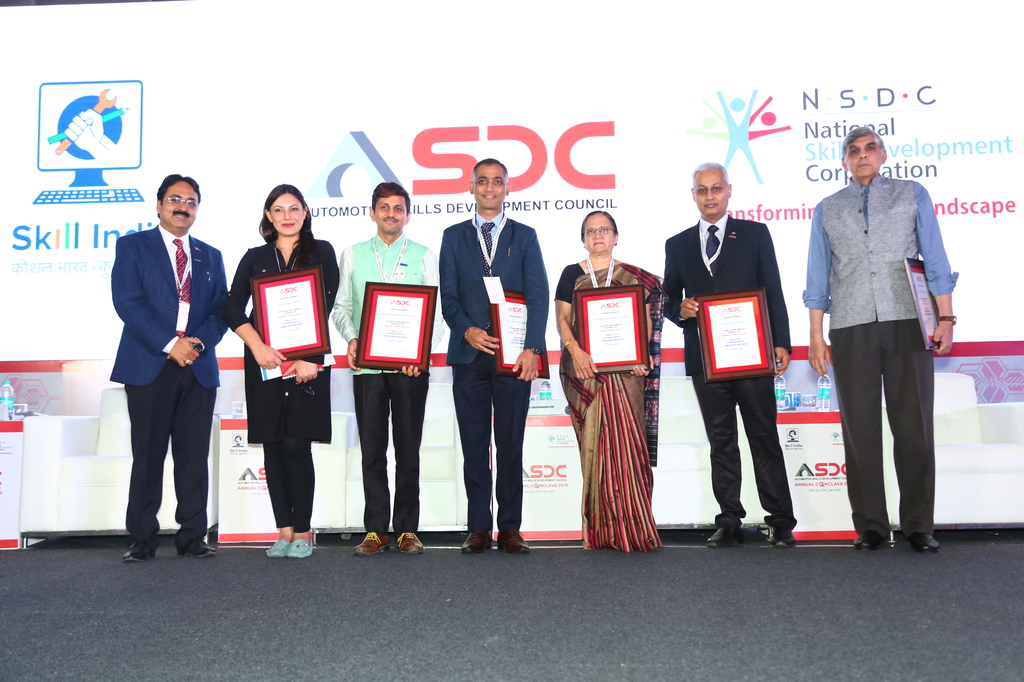
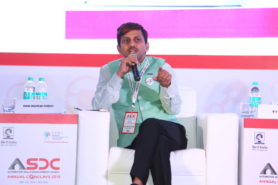 There’s been a continuous shortage of appropriately skilled workforce in the automotive industry despite many ITIs being improved in PPP mode. Though this seems like a failure from the supply side, we should look for ways to solve the problem and come up with multiple solutions. PPP model might have been successful but it does not match the scale and it has failed to some extent in the streamlining the supply side. The situation in our country in terms of skill is not very good. But it is not the time to accept failure. We have to identify what will work for us and we have to look for a possible solution. In India, the larger recruiters are unorganized sectors. As there are no representatives for them, ASDC can play a major role in that area. Practical training, apprenticeship is essential. In India the biggest problem is that the largest recruiter is the unorganised sector. There are no representatives for them. That is where the role of ASDC acquires more significance. Mr. Rama Shankar Pandey, MD Hella India Lighting Ltd
There’s been a continuous shortage of appropriately skilled workforce in the automotive industry despite many ITIs being improved in PPP mode. Though this seems like a failure from the supply side, we should look for ways to solve the problem and come up with multiple solutions. PPP model might have been successful but it does not match the scale and it has failed to some extent in the streamlining the supply side. The situation in our country in terms of skill is not very good. But it is not the time to accept failure. We have to identify what will work for us and we have to look for a possible solution. In India, the larger recruiters are unorganized sectors. As there are no representatives for them, ASDC can play a major role in that area. Practical training, apprenticeship is essential. In India the biggest problem is that the largest recruiter is the unorganised sector. There are no representatives for them. That is where the role of ASDC acquires more significance. Mr. Rama Shankar Pandey, MD Hella India Lighting Ltd
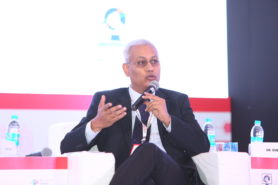 The industry has to play a big role in the skill ecosystem and it can happen only through the government-industry partnership. We need to perceive skilling in the right way; it works differently for people who are employed and the young people who have to get a job. We are not allowing the students to choose the nature of skilling that they want to acquire. Though the intent is right, the current form of skilling is not adding great value to the industries of today and it will not add value to the industries of tomorrow as well. There are about 150 trades that the ITIs are supposed to be teaching but few of the ITIs, over the years, have enhanced their infrastructure, their trainer qualifications and the curriculum, to be able to generate someone who is not only available for an employment but he is actually gainfully employed because skill is worth the money that the company wants to spend on you. PPP is the only way to take skilling forward. Private sector has clarity and are already aligned with institutes like ITIs. We adopt ITIs and depute our trainers, with new age pedagogy, have right knowledge, use technology tools and help students learn that has value in the market – Mr. Sanjoy Gupta, Vice President, Customer Care – Automotive Division, Mahindra & Mahindra Ltd.
The industry has to play a big role in the skill ecosystem and it can happen only through the government-industry partnership. We need to perceive skilling in the right way; it works differently for people who are employed and the young people who have to get a job. We are not allowing the students to choose the nature of skilling that they want to acquire. Though the intent is right, the current form of skilling is not adding great value to the industries of today and it will not add value to the industries of tomorrow as well. There are about 150 trades that the ITIs are supposed to be teaching but few of the ITIs, over the years, have enhanced their infrastructure, their trainer qualifications and the curriculum, to be able to generate someone who is not only available for an employment but he is actually gainfully employed because skill is worth the money that the company wants to spend on you. PPP is the only way to take skilling forward. Private sector has clarity and are already aligned with institutes like ITIs. We adopt ITIs and depute our trainers, with new age pedagogy, have right knowledge, use technology tools and help students learn that has value in the market – Mr. Sanjoy Gupta, Vice President, Customer Care – Automotive Division, Mahindra & Mahindra Ltd.
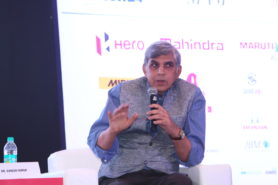 “In the context of skilling, we put the cart before the horse. There is a gap between knowledge and skills which should not have existed as our tradition treats them equally. Indian tradition laid emphasis on practical education and training by bringing together knowledge and skills. To quote Mahatma Gandhi, “What you do with hand reaches your heart”. However, today, we have mindset issues, we’ve downgraded skills and working with hands. We need to reconceptualize it. All institutions are blackboard driven. Whereas, the Indian tradition has treated knowledge and skills on par and this can be brought back in the automotive industry.” Dr Dinesh Singh, Chancellor, K.R. Mangalam University
“In the context of skilling, we put the cart before the horse. There is a gap between knowledge and skills which should not have existed as our tradition treats them equally. Indian tradition laid emphasis on practical education and training by bringing together knowledge and skills. To quote Mahatma Gandhi, “What you do with hand reaches your heart”. However, today, we have mindset issues, we’ve downgraded skills and working with hands. We need to reconceptualize it. All institutions are blackboard driven. Whereas, the Indian tradition has treated knowledge and skills on par and this can be brought back in the automotive industry.” Dr Dinesh Singh, Chancellor, K.R. Mangalam University




